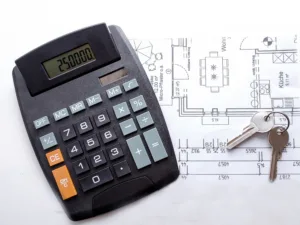Table of Contents
What is construction budgeting?
Construction budgeting is the process of creating a detailed financial plan for a construction project. This plan estimates the total cost of completing the project, breaking down expenses into various categories such as labor, materials, equipment, permits, design fees, and any other costs related to the project. The goal of construction budgeting is to provide a clear framework for how money will be spent from the beginning to the end of the construction process, ensuring that the project stays within financial limits.
The budgeting process involves carefully analyzing the project’s requirements, including its scope, specifications, and any unique challenges it might face. It requires gathering quotes, estimating costs, and considering potential budget obstacles. Construction budgeting also includes planning for contingencies by setting aside funds to cover unexpected expenses, thereby minimizing financial risks.
Effective construction budgeting helps project managers and stakeholders make informed decisions, allocate resources efficiently, and maintain control over the project’s financial health. It is a critical step in the planning phase of construction projects, enabling the successful completion of projects within their financial constraints.
Why is construction budgeting important?
Construction budgeting is crucial for several key reasons, streamlining the building process and fostering positive outcomes for both builders and clients. Here’s an enhanced perspective on its importance:
1. Streamlines Cost Management and Enhances Profitability
Similar to how a personal budget works, construction budgeting clarifies every expense involved in a project, allowing project managers to allocate each cost accurately. This precision prevents builders from absorbing unforeseen expenses, thereby safeguarding their profit margins. Companies that employ advanced budgeting tools often report significant savings per project. As noted by Mikk Ilumaa from Bauwise, meticulous tracking of even minor expenses, like those paid with credit cards, ensures that nothing is overlooked and every cost is billed to the client, preserving the project’s profitability.
2. Strengthens Builder-Client Relationships
Completing projects within or under budget increases overall satisfaction. Builders demonstrate fiscal responsibility and efficiency, potentially reflecting well on their profit margins. Clients appreciate staying within their financial expectations, enhancing their satisfaction with the project. Such positive outcomes lay the groundwork for future referrals and repeat business, solidifying long-term relationships.
3. Facilitates Strategic Decision-Making
A well-defined budget is a roadmap for making informed decisions throughout the construction process. It guides choices on material grades, appliance selections, and hiring skilled contractors, ensuring expenditures remain within the set financial parameters.
4. Identifies Risks Proactively
Regular budget monitoring allows project managers to spot potential risks before they escalate into major financial or operational issues. Construction is prone to unforeseen challenges, such as weather delays, permitting issues, or changes in client preferences. An active budget management approach helps adjust plans timely to mitigate cost overruns.
5. Ensures Accountability and Transparency
A thoroughly vetted and approved budget is a comprehensive record, establishing a transparent and accountable financial trail. This is particularly valuable in maintaining trust between builders and clients, especially given the significant investment involved in construction projects. In moments of potential tension or when facing change orders, a detailed budget provides a basis for discussions, helping all parties understand the need for adjustments and how to manage additional costs effectively.
In essence, construction budgeting is not just about keeping costs in check; it’s about ensuring project success, maintaining healthy client relationships, making strategic decisions, managing risks, and fostering transparency and accountability throughout the construction process.
What Is Included In a Construction Budget?
The construction budget includes all costs related to the construction of a building or infrastructure project. This budget is an important tool for planning, managing, and controlling the financial aspects of a construction project. It includes different types of expenses divided into several categories. Here’s an overview of what’s typically included in a construction budget:
1. Direct Costs (Hard Costs)
Direct construction costs refer to budget components directly associated with a specific project. These encompass labor, materials, equipment, and subcontractors, among others. Each element directly influences the project’s profitability.
- Materials: Costs of all building materials and supplies.
- Labor: Wages for construction workers, contractors, and subcontractors.
- Equipment: Costs for purchasing or renting construction equipment.
- Subcontracts: Costs associated with specialized subcontractors (e.g., electrical, plumbing).
2. Indirect Costs (Soft Costs)
Indirect costs include costs that are not directly related to any project. These include administrative costs, insurance, utilities, rent, and similar costs. Such costs affect the overall financial condition of the construction company significantly more than direct costs.
- Design Fees: Fees for architects, engineers, and other design professionals.
- Permits and Fees: Costs for obtaining necessary permits, inspections, and fees paid to local governments or regulatory bodies.
- Insurance: Construction insurance and bonds to protect against potential losses or liabilities.
- Site Preparation: Costs for clearing the site, demolition, and excavation.
- Utilities: Costs for temporary utilities on the construction site (electricity, water, etc.).
Contingencies
Contingency reserves are budget allocations intended to cover unforeseen or changing costs, including unexpected increases in the price of construction materials or overtime costs that may arise during a project. It is important for construction owners and contractors to set aside funds specifically for these unforeseen expenses.
- A reserve fund to cover unforeseen costs or overruns. Typically, a percentage of the total construction costs is set aside for contingencies.
Overhead
- Project Management: Costs associated with project management and administration.
- Legal Fees: Costs for legal advice, contracts, and any potential disputes.
- Office Expenses: Costs for temporary project offices, including rent, supplies, and utilities.
- Transportation and Travel: Costs for transporting materials and travel expenses for staff or contractors.
Profit Margin
- The expected profit or markup included in the budget, which compensates the builder or developer for taking on the project.
Land Costs
- Though sometimes considered separately, the cost of acquiring the land for construction can also be part of the overall budget, especially in project financing scenarios.
Financing Costs
- Interest payments on construction loans and other financing-related expenses.
Types of Budgets in Construction
In the construction industry, budgets are primarily divided into two key types: annual budgets and project-specific budgets.
Annual Budgets
Every construction firm is advised to prepare an annual budget, which is a comprehensive forecast covering expected income, cash flow, costs associated with various projects, payroll, and additional operational expenditures. This budget serves as a financial roadmap for the company, guiding its strategic planning and financial management over a year.
Project-Specific Budgets
For each individual project undertaken, a distinct project budget is developed. This budget provides a detailed estimate of all expenses related to the project, encompassing labor costs, materials, equipment usage, and any other expenses directly associated with the project’s execution. The project budget ensures that each construction job is completed within its allocated financial resources, optimizing profitability and efficiency.
How to create a construction budget
Here are key steps to take when creating a construction project:
1. Project Research and Analysis
Project research and analysis are foundational steps in accurately forecasting the costs and feasibility of a construction project. Beginning with a thorough assessment of the project’s goals, requirements, site conditions, zoning, and permit necessities, this phase is crucial for evaluating project viability. Leveraging historical construction budget templates provides invaluable insight, allowing project managers to identify where costs have previously exceeded expectations and to adjust their budgetary estimates accordingly. Additionally, reviewing historical data from similar projects, consulting with suppliers, and understanding the full scope of the project enable the setting of realistic expectations. This comprehensive approach, encompassing quantitative data and qualitative assessments, ensures a well-informed budget that accounts for resources, design options, and potential financial variances, laying a solid foundation for project planning and execution.
2. Project design and development
In a project’s design and development phase, initiating a collaborative dialogue with architects and design consultants is crucial to define the project’s potential scope accurately. This early engagement facilitates the exploration of creative design options through drawings or models, ensuring all stakeholders and decision-makers agree with the chosen concept. Critical to this phase is the alignment of the final design, which paves the way for drafting a comprehensive list of required materials. Seeking insights for cost estimates from outside consultants, including experienced engineers, is invaluable in understanding the intricacies and financial implications of the construction. This informed perspective not only aids in refining the project’s budget and timeline but also enhances the decision-making process when soliciting and evaluating bids from potential contractors. As the design solidifies, the project manager compiles a detailed requirements list that supports a transparent and competitive bidding process, ultimately leading to the selection of a general contractor. This systematic approach ensures that the groundwork for the project is based on a robust framework of informed choices, setting a solid foundation for the budgeting and execution phases that follow.
3. Pre-Construction and Documentation
During the pre-construction and documentation phase, it is critical for the project manager to communicate with all stakeholders, including contractors and architects, to discuss the project thoroughly and carefully review the budget. This collaborative approach not only highlights potential issues that can be proactively addressed to mitigate risks, such as cost overruns, but also ensures that the project is on budget and schedule from the start. Documenting these discussions and all related project documentation, such as permits, contracts, and deliverables, is essential. This documentation is an important paper trail that can pinpoint where unexpected costs may occur, informing and refining the construction budget. This phase lays the groundwork for the smooth implementation of the project by proactively resolving potential challenges and securing all necessary information and agreements.
4. Construction and project closeout
During the construction and closeout phase of the project, close monitoring and review of the budget is critical to ensure that construction progress and related costs align with original estimates. This phase, usually the longest of the project, requires constant vigilance to keep construction on schedule and within budget. Encountering obstacles is a common aspect of construction projects, so keeping a detailed change order log to track and document deviations from the planned budget or schedule is necessary. Proactively identifying potential problem areas and developing effective solutions is critical to effectively managing challenges. In addition, maintaining clear communication with all stakeholders, including contractors and utilities, and monitoring results and material usage are important practices. This makes it easier for contractors to make timely and accurate payments and helps with the smooth completion of final stages, such as creating punch lists, closing checklists, securing warranties, and performing necessary inspections. Using tools such as project closure checklists can significantly improve the management of these critical tasks, ensuring successful project completion.
For those who like to consume content visually, here is a useful video of how to create a construction budget:
Mistakes to avoid when construction budgeting
When budgeting for a construction project, it’s essential to avoid several key pitfalls that can significantly impact the project’s financial health and overall success. Here’s a breakdown of these critical errors under specific subheadings:
1. Inaccurate Cost Estimation
The cornerstone of a successful construction budget lies in accurate cost estimations. Yet, this is where many project managers falter, especially when a clear project schedule is not established. This oversight can lead to selecting the lowest bids from contractors, prioritizing short-term savings over long-term quality and sustainability. Such decisions, while initially appealing to stakeholders, can ultimately compromise the project’s integrity, leading to higher costs and reputational damage.
2. Inadequate Planning
A thorough plan is vital for the smooth execution of a construction project. Neglecting this step can result in missed dependencies and overlooked design flaws, causing delays and potential budget overruns. Effective planning should encompass all aspects of the project, ensuring that every contingency is accounted for and every phase is meticulously mapped out.
3. Poor Budget Management
Budget management is an ongoing process that doesn’t end with the pre-construction phase. It requires continuous oversight to ensure the estimated costs align with the project plan. Surprisingly, some project managers focus more on project management than on understanding the budget numbers. This lack of attention can lead to unexpected shortfalls in expected profit.
4. Communication Breakdowns
Almost two-thirds of construction projects face delays due to poor communication. Ensuring your team and subcontractors are well-versed in the project’s communication channels from the start can mitigate this risk. Proper information flow is crucial throughout the project to avoid unexpected costs and keep the project progressing smoothly.
By addressing these areas—accurate cost estimation, comprehensive planning, diligent budget management, and effective communication—a construction project can significantly increase its chances of success, staying on schedule and within budget.
Use Bauwise construction budgeting software to save time and money
Using Bauwise construction budgeting software is a transformative strategy for construction professionals to streamline their financial management processes, saving time and money. This advanced software solution simplifies the complex task of budgeting through its intuitive interface, real-time budget tracking, and detailed financial reporting capabilities. By providing a comprehensive overview of all project funds in one centralized location, Bauwise eliminates the need for cumbersome spreadsheets and manual calculations.
Written by

Taavi Kaiv
Taavi Kaiv is a construction specialist with over ten years of experience in the construction industry. Taavi is an accomplished construction project manager with many successful projects that have been completed under his guidance. Taavi holds a master’s degree in construction management from the Tallinn University of Technology. View profile
Related posts
Read our articles where you can find useful and relevant information about construction budgeting:






